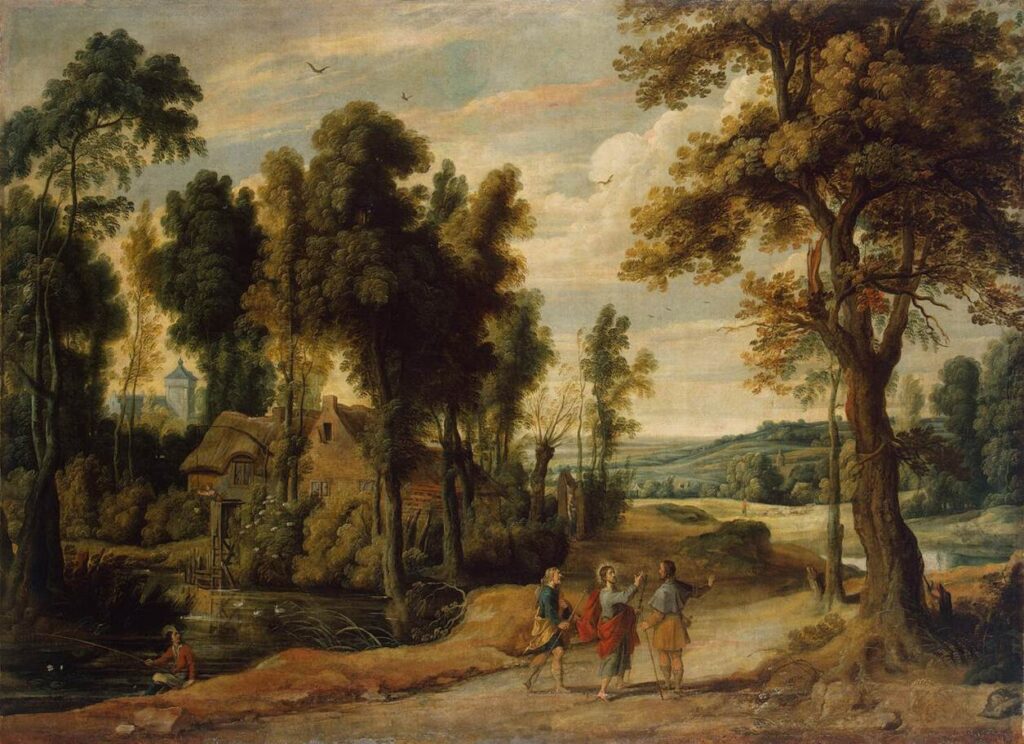When you love someone, you prove it

An aspiring Broadway actor was on the brink of a massive reversion back to the Catholic faith of his childhood. One fateful day, he decided to attend Mass. Throughout the celebration, he struggled internally, wrestling with what it was that he believed. The cross especially troubled him. Exasperated, he silently cried out, “So, why did your son have to die? I don’t get that, the whole thing!” Lo and behold, a clear answer rang in his heart: “When you love someone, you prove it.”
God proves his love to us in a thousand ways. He created each of us as unique, unrepeatable, and irreplaceable individuals, longing to share his life with us. Consider the intricacy of our fingerprints. Those tiny, invisible patterns at the tips of our fingers are unique to each person. If God took such care in designing them, how much more effort did he put into crafting the more important parts of us—our hearts, wills, memories, intellects, imaginations, and consciences? God knows us intimately, loves us unconditionally, and chooses us personally.
Each of us reflects a facet of God. We are entrusted with missions that are uniquely ours. Our worth is not defined by our actions, wealth, talents, education, or status. We are lovable simply because we exist. Our souls are immortal, destined to share in the eternal exchange of love that is God in heaven. This divine life begins through the sacramental life of grace here on earth.
“When you love someone, you prove it.” Jesus understands our insatiable thirst to be loved, which no one and nothing can ever satisfy. In response, Jesus, who is love, chooses to give himself as food and drink. We could have never in our lives dreamed of asking God such a thing. On the cross, Jesus was stripped of his clothing, but in the Eucharist, he is even stripped of his human appearance—imagine the humility of this.
Our crucified and risen Lord wants to reveal himself to each one of us, just as he did to the disciples on the road to Emmaus. Jesus went in pursuit of the two disciples because he loved them; their struggle mattered to him. They needed to debate, discuss, and grapple with their doubt, confusion, frustration, and grief, and Jesus wanted to be with them in it. He joined them on a journey, explaining everything to them. He met their slowness of heart by going at their pace, first receiving them and then responding, causing their hearts to burn. It is the same for us. Jesus meets us where we are and then draws us to the truth. There is nothing about us that is too much for him.

On the road to Emmaus, Jesus gave the impression that he was going farther but then stayed when the disciples invited him. Likewise, what may feel like distance and silence from the Lord could actually be him waiting for our invitation to stay with us. And just as Jesus stayed with the two disciples, he stays with us, through our dashed dreams and shattered realities. Painful experiences, betrayals, and failure, although unexpected and unwelcome, can be invitations to greater faith, hope, and love, and a deeper trust in God’s unwavering goodness. As the Litany of Trust says, “That my suffering united to your own will bear fruit in this life and the next.”
The enemy is a malicious accuser and liar. Shame and blame are his signature. As we face storms in our lives, the enemy uses them to accuse and shame us, turning us against God and making us question his goodness and his love. Each struggle is an opportunity to grow in trust, and when we stay with the Lord, he redeems every failure. However, we do not measure success as the world does. It is in gazing at the crucifix that we truly understand what success means. Jesus died looking like a total failure, yet this is how he redeemed the world triumphantly. The more we gaze at the crucifix, the more we understand our lives.
It is fear that prevents us from receiving all that the Lord has promised for those who love him. We know that perfect love casts out fear. Today, the world needs love more than ever. As instruments of love, we need to ask ourselves:
- Where is fear holding me back?
- Are there places in my life where I’ve been foolish, clinging to worldly ways, seeking comfort, and avoiding the ways of discipleship?
- Are there places where I’ve been slow of heart, dragging my feet, and resisting the Lord’s will?
- Where am I in need of answers?
- Where am I without hope?
Bring it all to Jesus; nothing is too much for him. Ask for his mercy and grace, and then surrender to him.
The final victory is already won—sin and death are conquered. Yet, the battle still plays out in our hearts, and our Lord Jesus continues to fight for us. Jesus accepts us where we are and then leads us to conversion. He draws near to us and wants to reveal himself in Word and Sacrament. To be fully alive, on fire, and in love, these are the fruits of encountering Jesus and letting him radically change us, living a life that is a yes to God.
This article presents highlights from a talk by Sr Bethany Madonna at the National Eucharistic Congress in Indiana, USA. Watch her full talk here.

